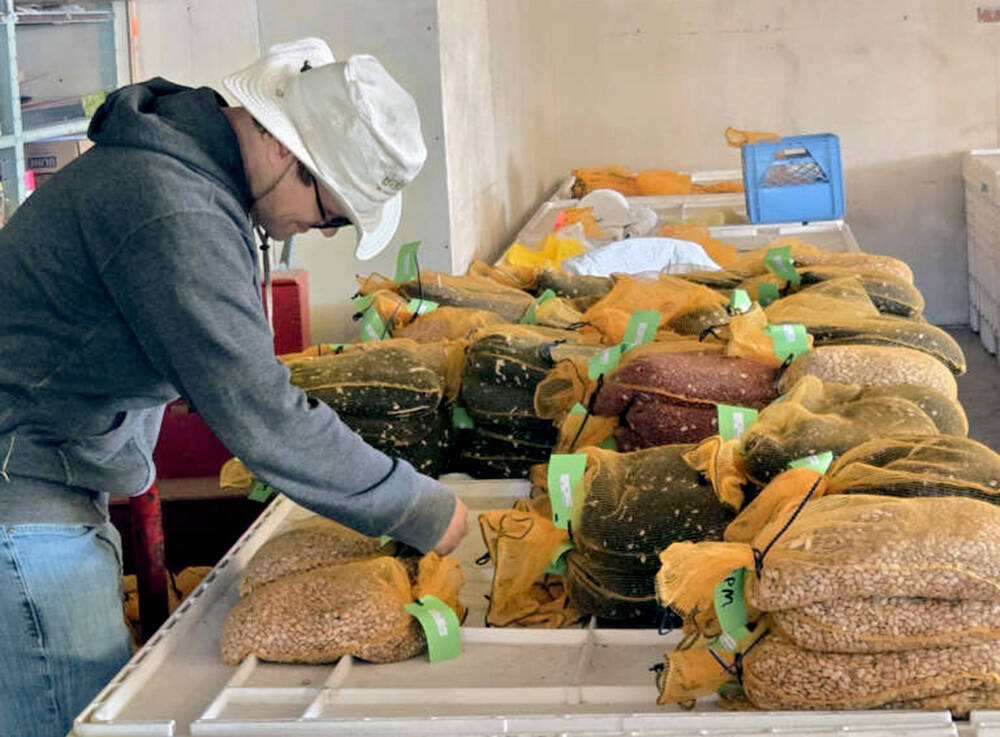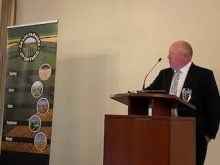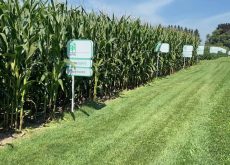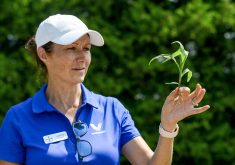Wet weather from mid-September into October made it difficult for growers to plant winter wheat this fall.
The 2021 soybean harvest started well, with signs of an early harvest, but rain started in mid-September and continued to limit progress.
“A lot of (growers) got into the field around the traditional farm show time, and then early October, that was about the last real nice stretch. There are some areas, down in (Haldimand and Niagara), where it’s been extremely tough,” said Alex Zelem, agronomist with C & M Seeds.
Read Also

Bean research breeds community giving
University of Guelph dry bean researcher Dr. Mohsen Yoosefzadeh Najafabadi champions sustainability by donating surplus breeding program beans to support food security and community art initiatives.
Why it matters: Moisture conditions may prevent Ontario farmers from planting winter wheat at the optimum time, forcing them to make other cropping plans.
As of Oct. 29, about 60 per cent of the Ontario winter wheat had been planted, he said.
“Where I am in Huron, we are probably at 60 to 70 per cent. I would say Essex and Lambton is the same, (Haldimand and Niagara) counties, I would say maybe five per cent of intended wheat is planted.”
Soil type is a big factor.
“(Fields where) the moisture has been able to drain away, it’s looking pretty good, with significant top growth,” said Joanna Follings, cereals specialist with the provincial agriculture department.
“The plants are well developed before going into the winter. On the flip side we have fields with lots of water sitting, it’s yellowing, it’s showing tile lines, and that’s just due to the fact that the water is not able to get away.”
Wheat doesn’t love “wet feet,” but it can handle some moisture. The challenge starts when the soil is so saturated that no oxygen is available to the plants.
Across Ontario, Follings said she is seeing crops that are drowned in low-lying areas and they may not recover. In areas with lighter ground, growers may still plant wheat but those in heavy clay soil areas may consider changing their crop plans.
Zelem said growers’ comfort levels, and whether they carry crop insurance, are factors in their decisions.
Warmer than average October temperatures generated some optimism among growers.
“If you’re planting into good conditions, I don’t think there is anything wrong with (planting this late),” Zalem said in late October. “You just have to manage a little differently.”
Follings said that if the wheat germinates before winter, it can reach average yield if properly managed.
Growers are advised to use seed-placed phosphorus on low testing soil, increase seeding rate to two million seeds per acre, treat seed with fungicide and plant into good soil conditions.
“Ensure that that seed trench is in fact closing so we do get some good seed to soil contact, some good germination, (and ensure) those roots are well anchored,” said Follings.
Later planted fields with less tillering will need a nitrogen application in the spring. Growers can delay early spring nitrogen application in fields planted early because they will have more early-season growth.
“It’s really going to depend on when those fields were seeded in terms of how we manage our nitrogen,” Follings said.
Growers unable to plant this fall will still have spring cereals as an option. They can be frost seeded in March.
“When we get that freeze-thaw action you are much more successful because you have that freeze-thaw action to actually close the seed trench,” said Follings. “Research at the University of Guelph (has) proven that to be very successful with spring cereals.”













